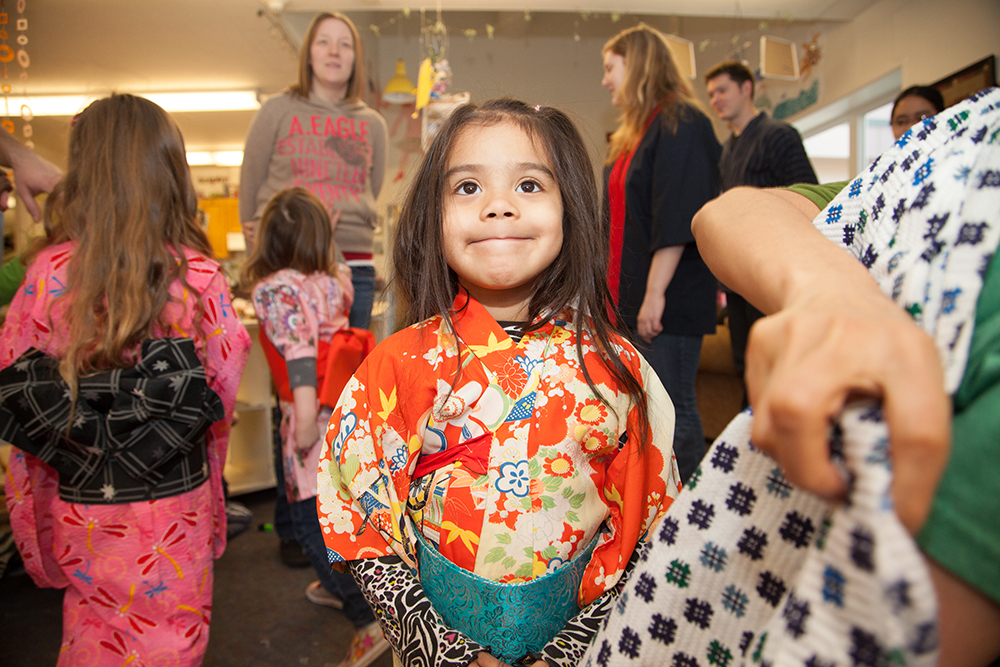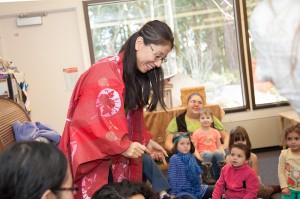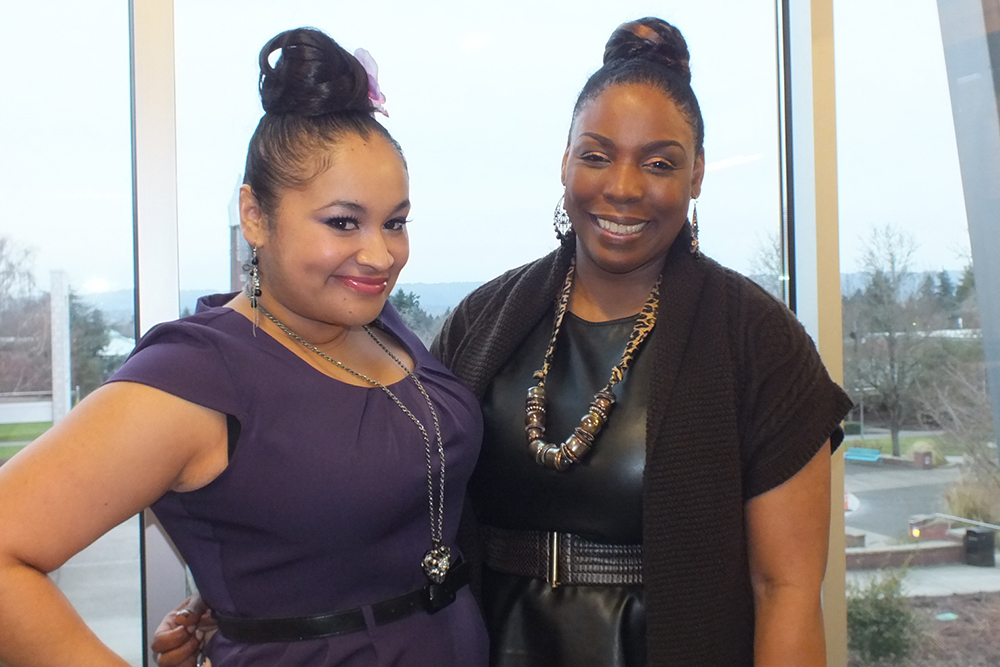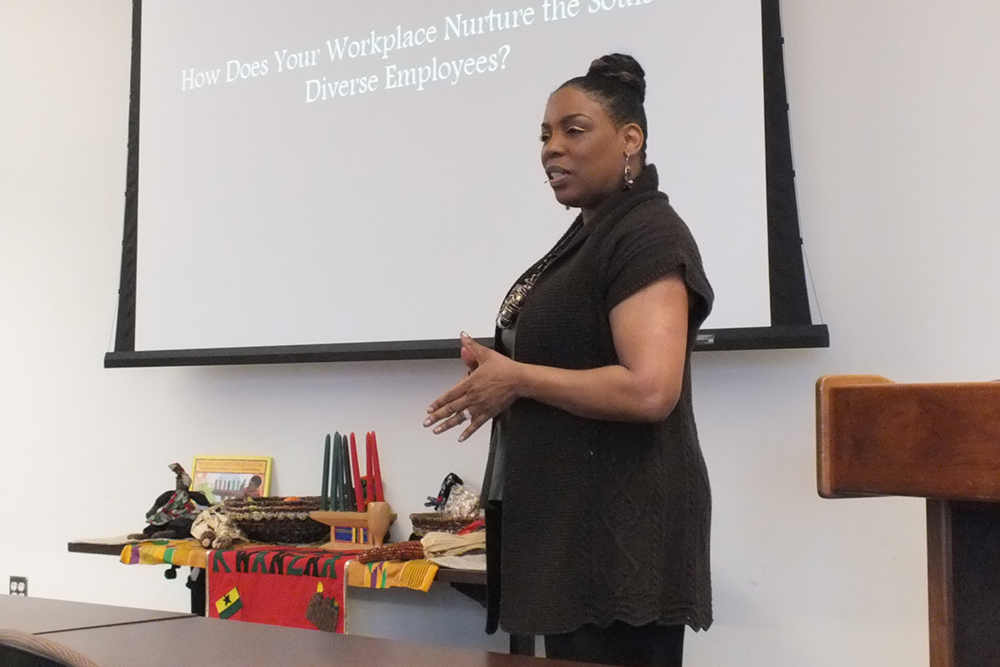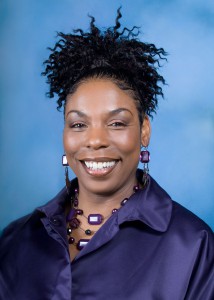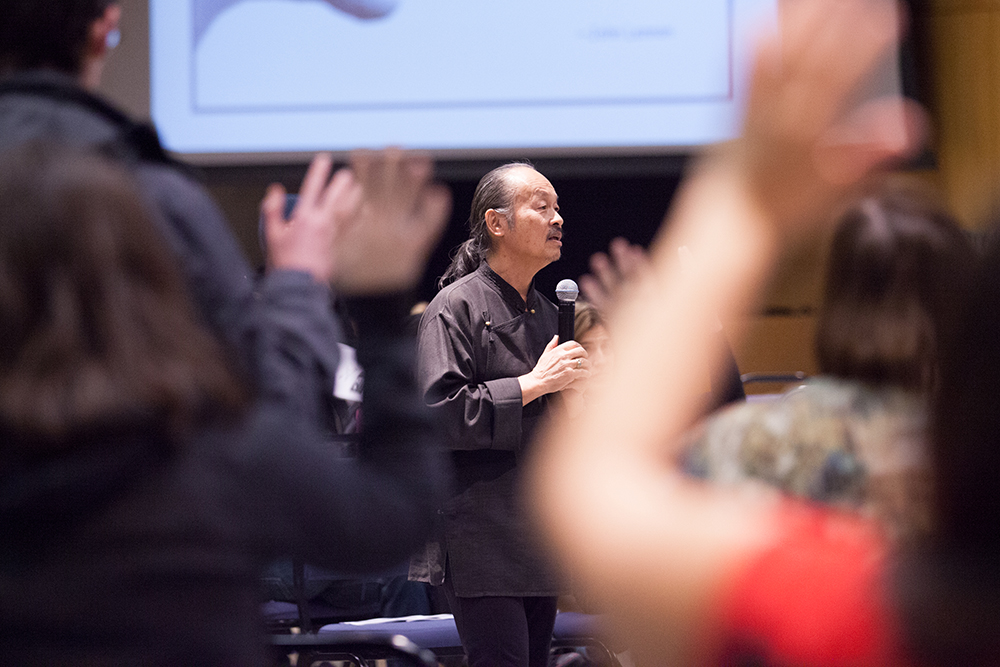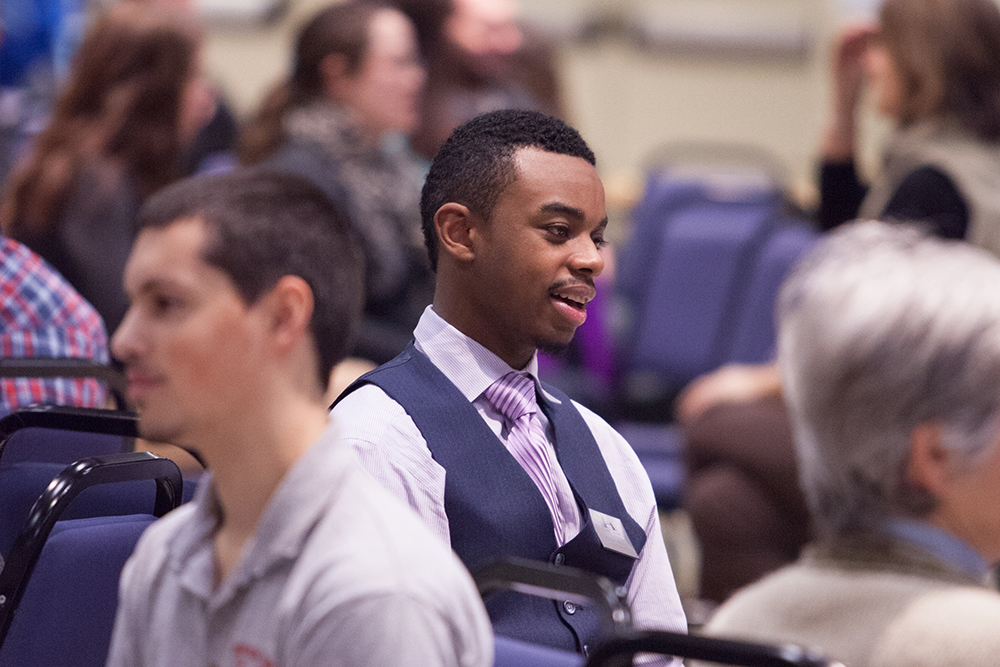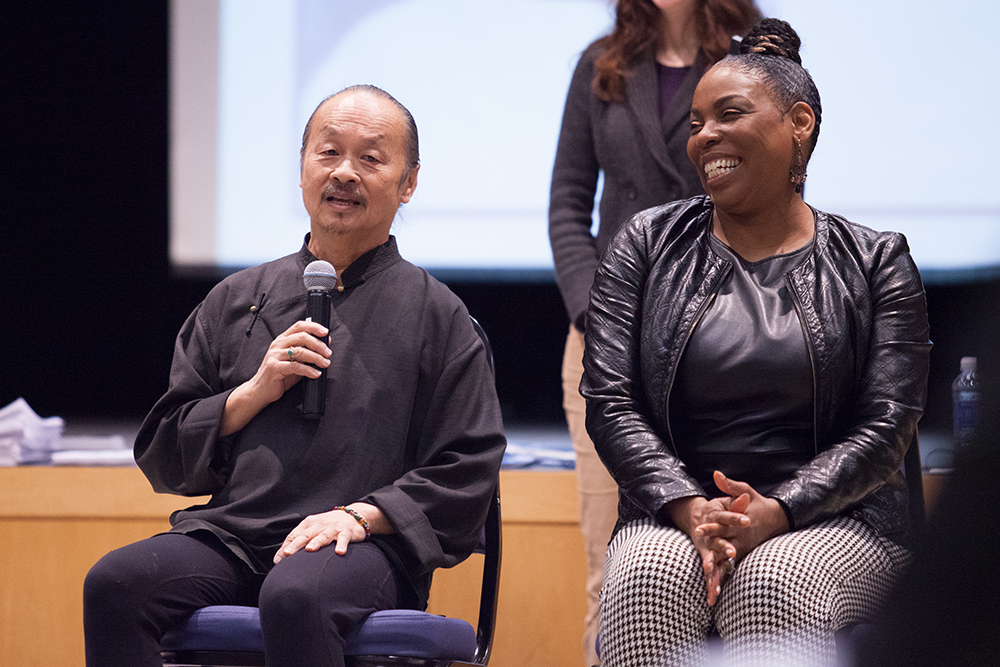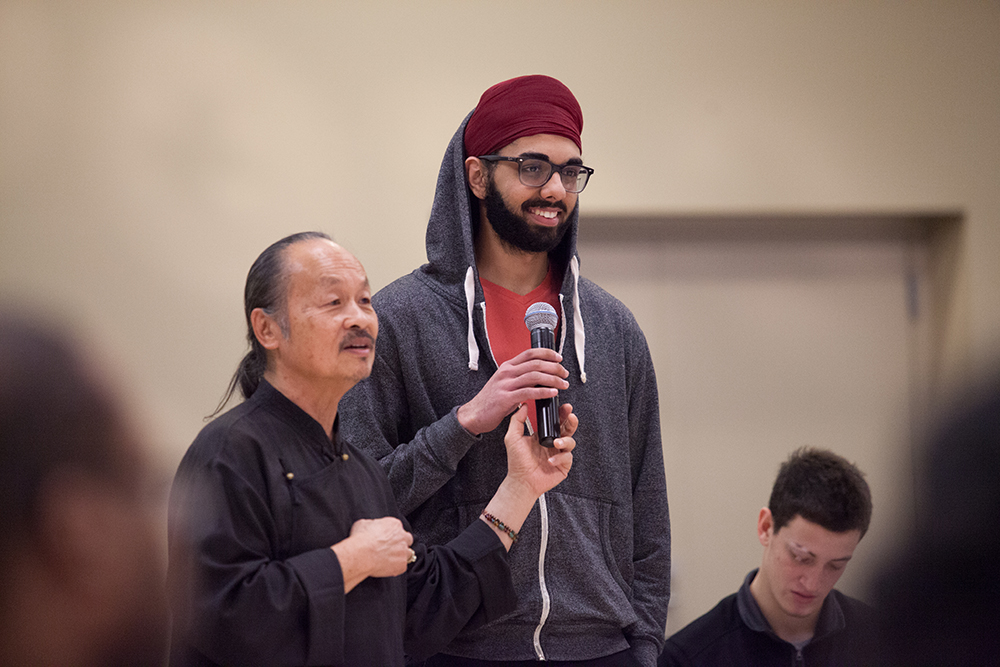A Lesson They Can Wear
It’s the first sunny day the children in Terry Haye’s classroom in Clark College’s Child & Family Studies program have seen for a while, and the classroom’s staff need a few moments to gather everyone on the carpeted area normally reserved for Story Time. But as Haye speaks, the children settle down to listen.
“All right, friends,” she says. “Let’s sit down. I would like to welcome Michiyo to our classroom. Can you say, ‘Konnichi wa?'”
“Konnichi wa,” chorus the children, ages 3 to 5. Japanese professor Michiyo Okuhara beams at them.
“Konnichi wa! Hello there!” she says. “My name is Michiyo, and I’m going to show you some traditional kimono from Japan.” With that, Okuhara pulls a vibrantly patterned kimono from a bag, and the children gasp.
Okuhara doesn’t just show off the kimono: With the help of volunteers from Clark’s Japanese Club, she fits many of the children with pint-sized kimonos from her collection. She explains that this activity is in preparation for Clark’s annual Sakura Festival on April 17, where the children will appear in the finale of a kimono fashion show.
While the kimono demonstration is new, the partnership between Haye and Okuhara goes back seven years, when Okuhara’s own son was a child in Haye’s classroom. At the time, Clark College had just begun holding a celebration of the campus’s 100 shirofugen cherry trees, a living symbol of friendship between the people of Vancouver and Japan. Haye invited Okuhara to visit her classroom to share stories about sakura celebrations in Okuhara’s native Japan. From that beginning has developed a rich partnership; today, with the help of the Rotary Club of Vancouver, children in the CFS program participate in an artwork exchange with children in a preschool in Vancouver’s sister city of Joyo, Japan. CFS children also attend Sakura each year, learning about Japanese culture.
“I’m always looking for ways to involve our children in the community on campus,” says Haye. “It’s a wonderful resource for us. We track the [shirofugen] trees each year, visiting them during each season. When they blossom, we have a picnic down there. And having Michiyo visit each year and share her experience, that’s a great way for our children to learn about another part of the world.”
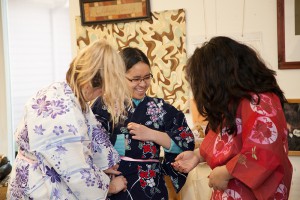
Teira Harbeson, left, and Abigail Sloan, right, help a fellow member of the Japanese Club adjust her kimono.
It isn’t only the children who are learning: Japanese Club member Teira Harbeson says that visiting the classroom is giving her a taste of what may be in store for her one day. “I want to become a teacher myself,” says the 21-year-old sophomore, who says her interest in Japan was reinforced when she traveled there with Okuhara last year through Clark’s Study Abroad program. “I want to travel to Japan and teach English there, and while this is a different age group, it still gives me some experience.”
Japanese Club member Abigail Sloan adds that she wished she’d had opportunities to experience other cultures at such an early age. “I think it opens things up for them,” says the 15-year-old Mountain View High student, who attends Clark through Running Start. “The world is becoming more and more globalized, and it’s really good for citizens to get exposure to other cultures early on.”
The time has come for the children to take off their kimono and go play outside. As they wait to have their obi untied, one girl fingers the pink flowers on her kimono thoughtfully. Then she looks up at a visitor and says, “I want to know about Japan. I want to know lots more!”
Photos: Clark College/Jenny Shadley
